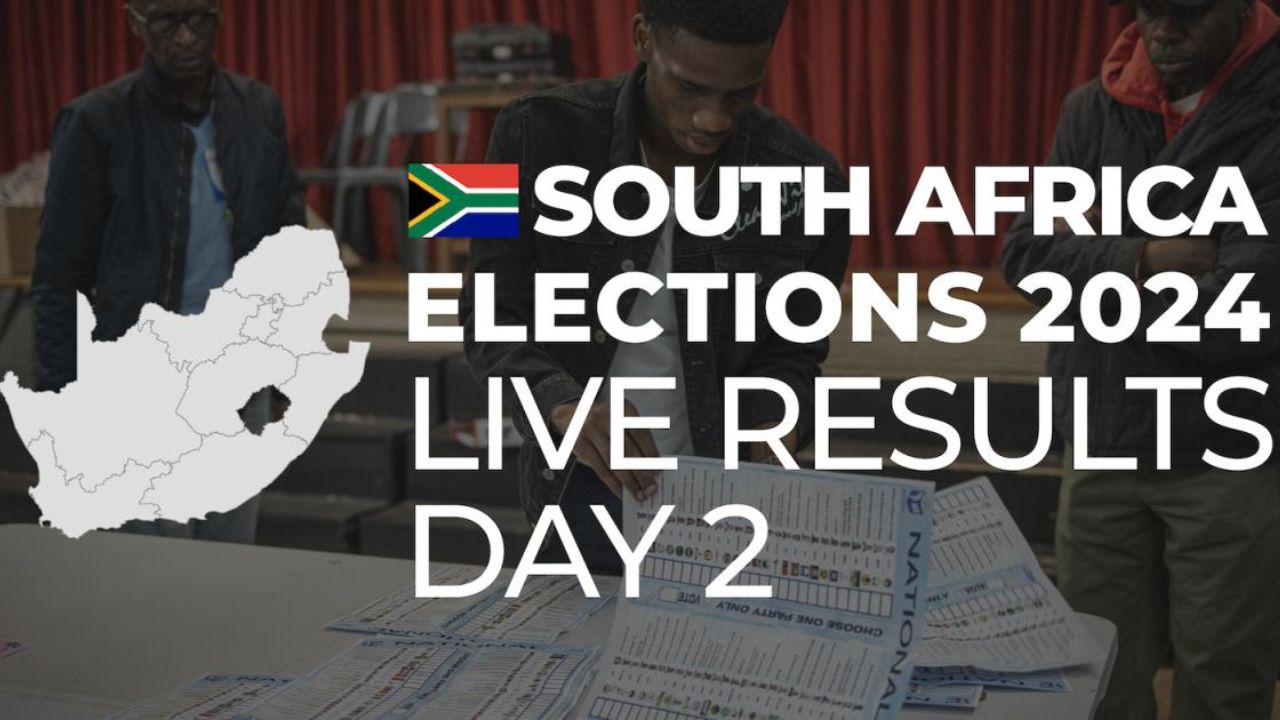Everything You Need To Know About South Africa Elections Results 2024
Partial election results opened a new tab on Thursday revealing that the African National Congress appeared destined to lose the parliamentary majority it has had for thirty years as voters punished the erstwhile liberation movement for years of deterioration in South Africa.

Even though it appeared that the late Nelson Mandela’s party would continue to be the biggest political force, this would require it to form a coalition with other parties for the first time in the nation’s post-apartheid history.
After 42.1% of polling places reported results, the ANC received 42.7% of the vote in Wednesday’s referendum. In the previous election in 2019, it received 57.5% of the vote.
If that pattern continues, the ANC may have difficulty forming coalitions with smaller parties to put itself in a position to choose between three fierce opponents.
“The ANC is in a trilemma,” said political analyst Sizwe Mpofu-Walsh.
The election commission revealed partial results, placing the pro-business Democratic Alliance (DA) in second place with 23.6% of the vote.
Former president Jacob Zuma’s new party, uMkhonto we Sizwe (MK), was gaining ground on the ANC, especially in KwaZulu-Natal, his home province and a longtime bastion of the ruling party, with a 10% share.
With 9.5% of the vote, MK had also surpassed the extreme left Economic Freedom Fighters (EFF), who were the third-largest party in parliament at the time.
A series of scandals in 2018 pushed Zuma to resign as president. Since then, he has supported MK, which is named after the ANC’s armed wing during the apartheid era. However, because of his prison sentence, he is not eligible to run for a seat in parliament.
“MK is the reason why the ANC is getting less than 50%,” Oscar Van Heerden, senior research fellow at the Centre for African Diplomacy and Leadership at the University of Johannesburg, told Reuters.
Since a historic referendum in 1994 that ended white minority rule and installed Mandela, the African National Congress (ANC) has won every national election.
However, for the past ten years, the ANC has been rocked by numerous corruption scandals, and South Africans have witnessed the country’s economy stagnate, unemployment and poverty rise, and infrastructure deteriorate to the point where frequent power outages occur.
‘DISASTER FOR SOUTH AFRICA’
The ultimate findings would corroborate that the ANC had lost its majority, according to pollsters and two of the three major broadcasters in the nation.
Nonetheless, Independent Electoral Commission head Mosotho Moepya cautioned against drawing undue conclusions from the preliminary findings.
We are currently attempting to cope with an incomplete image, if incomplete at all. He said, “It’s still in the oven,” during a press conference held at the national counting centre.
Parties’ percentages of the vote decide how many seats they receive in the National Assembly, which ultimately chooses the country’s next president, under South Africa’s proportional voting system.
That might still be President Cyril Ramaphosa, the head of the ANC. But a dismal performance in the polls might encourage a challenge to the leadership.
Concerns about a potential alliance with Zuma’s MK or the EFF, which demand the confiscation of land owned by white people and the nationalization of banks and mines, have been expressed by investors and the business sector.
The ANC, the EFF, and MK all have similar policy positions. Leader of the EFF Julius Malema and former ANC member Zuma had a falling out with the organization’s leadership.
John Steenhuisen, the leader of the DA, has pledged to overthrow the incumbent party, but he hasn’t ruled out working with the ANC to prevent the EFF or MK from forming a “doomsday coalition” and taking power.
That would give investors pause. The economy would collapse. The head of the Democratic Alliance’s federal council, Helen Zille, told Reuters that it would be disastrous for South Africa. (www.keithmcquirter.com)
However, she stressed that the DA had not started negotiations with any parties for a coalition.
On Thursday, the rand lost almost 1% versus the US dollar while the broader equities index (.JTOPI), opens a new tab, plunged by nearly 1.9%. International and local bonds were also under strain.
ANC Deputy Secretary-General Nomvula Mokonyane told Reuters that she was taken aback by the results in KwaZulu-Natal, where MK was faring better than the ANC.
We want to give ourselves time to think things through because it’s still early. “The race is still ongoing,” she declared.
On the other hand, the MK party emerged victorious, denouncing what it referred to as “Ramaphosa’s dismal regime”.
Although the electoral commission has seven days by law to announce the complete results, in reality, they typically do so far sooner.
Following the announcement of the final results, the new parliament must meet within 14 days and elect the country’s president as its first act.


Comments are closed.